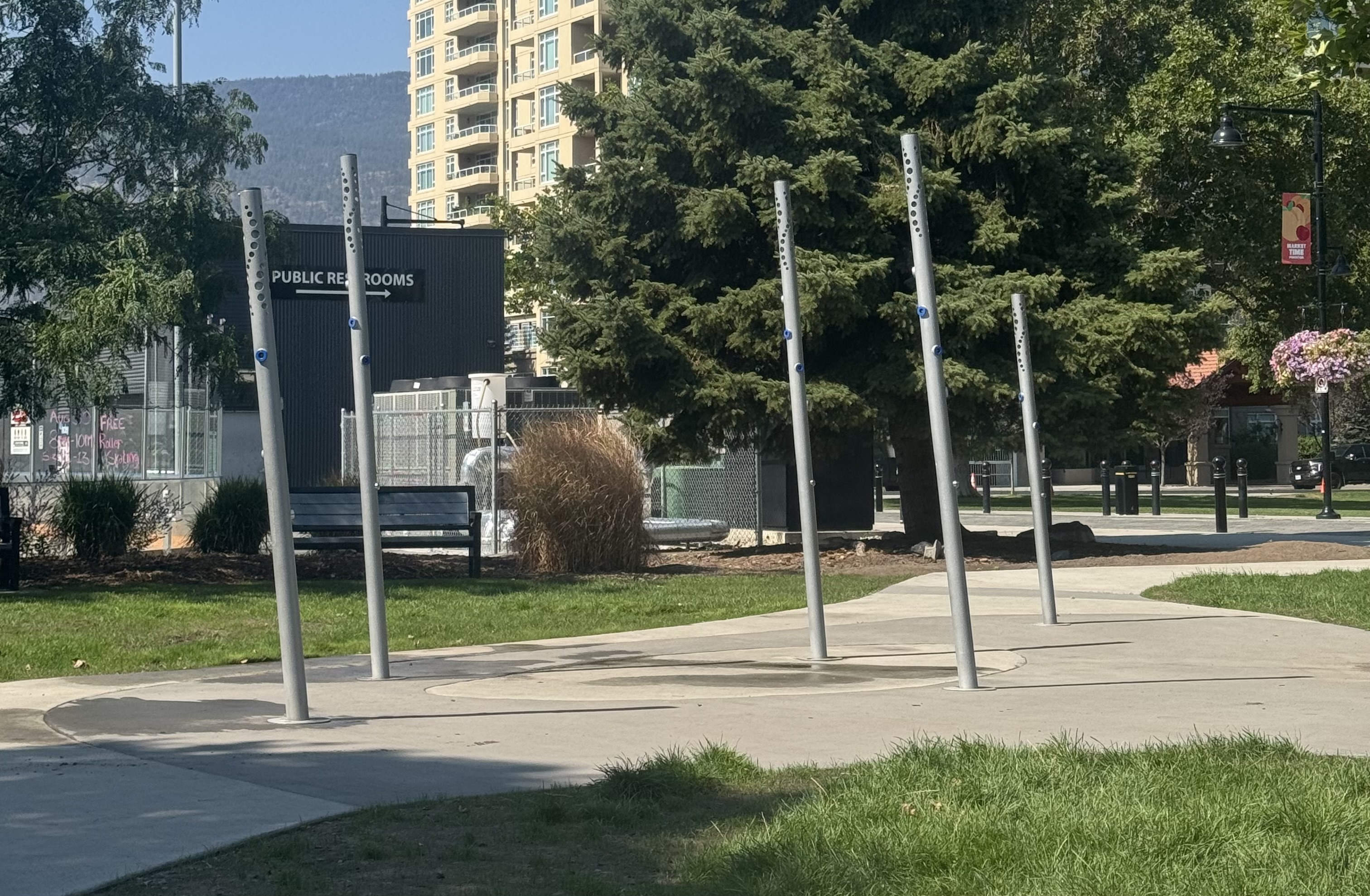With Environment Canada predicting sustained high temperatures in Penticton and the surrounding area, the City of Penticton is encouraging residents and visitors to stay safe by drinking plenty of water, stay cool and check in on neighbours. Watch this page for updates and tips for how to keep cool.
All civic facilities such as the Community Centre, the Public Library and the Penticton Seniors’ Drop-in Centre are good options for people needing temporary relief from the heat during normal business hours.
Health & Safety
Places to Stay Cool
Resources for Pets
Pets are vulnerable to extreme temperatures. Pet owners are advised that dogs are at risk of burning their paws on the asphalt and of getting heat stroke if outdoors in the extreme temperatures.



